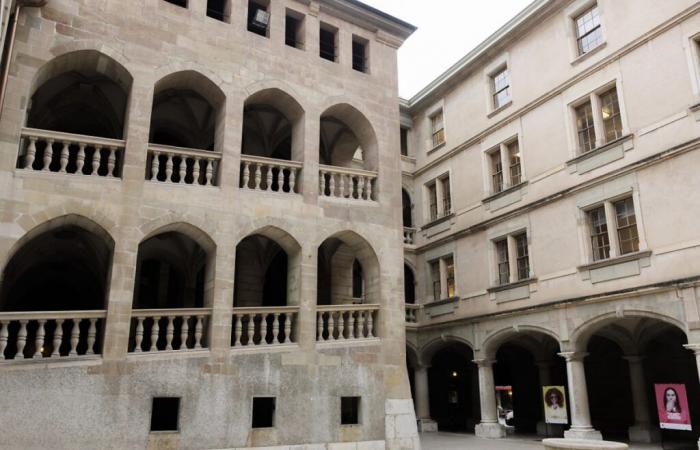Keystone-SDA
The Court of Auditors published on Monday an uncompromising report on the acquisition of services and the allocation of mandates within the State of Geneva. The “policeman” of the administration noted “numerous irregularities”.
This content was published on
December 16, 2024 – 1:13 p.m.
(Keystone-ATS) The Court of Auditors thus discovered that subsidies were granted through mandate contracts. A practice which constitutes “a violation of the provisions” of the law on compensation and financial aid (LIAF). Around fifteen cases of this type have been recorded.
However, no trace of corruption has been uncovered, stressed the co-author of the report François Paychère, speaking to the media. The magistrate did not exclude that there was sometimes a desire to free themselves from the rules or that some acted out of ignorance of them.
The mandate is a less rigid legal form than subsidies, explained, for her part, her colleague Isabelle Terrier. Subsidies are more regulated and appear, for example, in the budget.
Poorly identified needs
Another observation by the investigating magistrates is that “it is not always possible to understand a posteriori the reasons which push the State to use a third party and how the expenditure serves to achieve public policy objectives”.
The State carried out, for example, a public call for tenders to find an agent capable of carrying out a future call for tenders on behalf of an office. It also pays an independent person to chair a delegation and represent their interests on a board of directors.
The Court of Auditors also noted that the State granted mandates over the counter when they should have been subject to public procurement legislation.
An office thus awarded three mandates with similar objectives to two companies managed by the same person. For the Court of Auditors, the three mandates should have been considered as the same contract. The division made it possible to avoid having to go through a procedure open to all suppliers.
Blockage at the Council of State
The Court of Auditors recommends “simple” measures that would improve the process and fill the gaps that have been identified, but it complains of not having had the desired attention from the Council of State. Of the 10 recommendations, 7 were refused without explanation, lamented Mr. Paychère.
The magistrate cannot explain this attitude, this “disinterest” of the executive. “We are offering basic things, which are nothing revolutionary,” underlined Mr. Paychère. The Court of Auditors recommends, for example, that the State clarify the notion of market and its delimitation.
In a press release published Monday, the Geneva Council of State criticized the “deliberately oriented approach” of the report. The survey covered a sample of 84 orders and 26 suppliers, out of a total of 36,000 annual orders. The executive also noted “that no fraud or financial damage has been noted”.
The Court of Auditors looked into the subject of mandates to the State of Geneva at the request of the Finance Commission of the Grand Council which was investigating the Fabienne Fischer affair. The former state councilor was suspected of having granted mandates to associations close to her companion.






